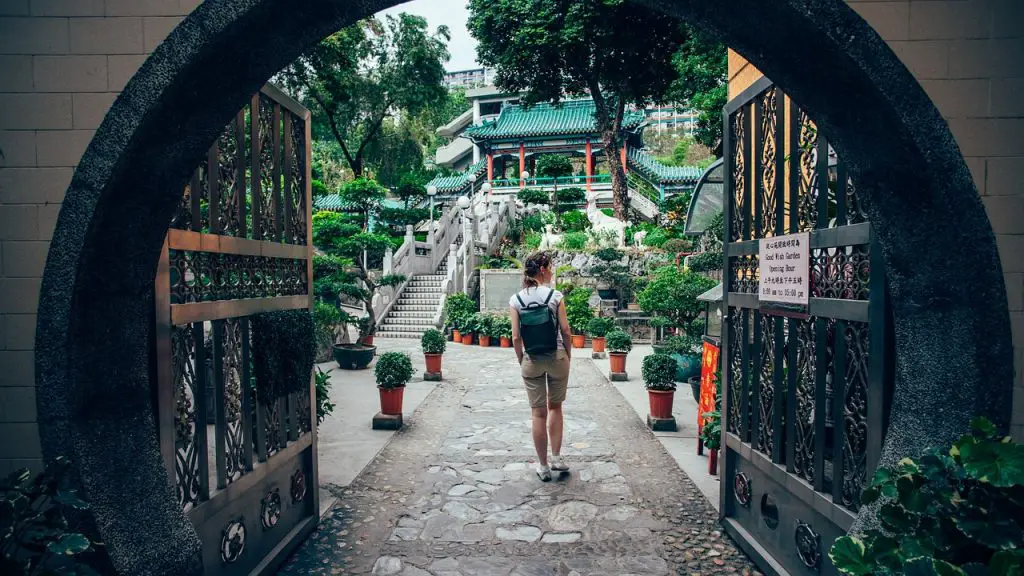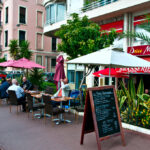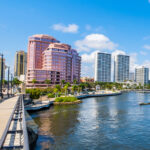Hong Kong, located on China’s southeastern coast, is a special administrative region known for its vibrant lifestyle, breathtaking skyline, and multicultural environment. It is a significant global hub for international trade, finance, and tourism, and offers a unique blend of Eastern and Western cultures due to its history as a British colony before the 1997 handover to China.
The name Hong Kong means “fragrant harbor” in Cantonese, reflecting the city’s historical beginnings as a fishing village. The harbor is still a vital part of Hong Kong, acting as a gateway for countless vessels from all over the world. The modern city of Hong Kong includes Hong Kong Island, Kowloon Peninsula, the New Territories, and more than 200 outlying islands.
Hong Kong’s skyline is one of the most famous in the world, boasting a significant number of skyscrapers. Towering buildings, such as the International Finance Centre (IFC) and The Centre, rise against the city’s mountainous backdrop, offering a stark contrast between urban development and natural beauty. The cityscape viewed from the Victoria Peak or during the evening ‘Symphony of Lights’ is a must-see spectacle that continues to awe visitors and locals alike.
Hong Kong’s economy is one of the most open and dynamic globally. Historically, it has thrived as a hub for trade between the East and the West. Today, it is an essential center for banking, finance, and commerce, housing numerous multinational corporations and acting as a significant gateway for businesses entering the mainland Chinese market. The Hong Kong Stock Exchange is among the world’s leading stock exchanges by market capitalization, reflecting the city’s pivotal role in global finance.
Culturally, Hong Kong is a melting pot where Eastern traditions blend with Western influences. This is evident in its cuisine, architecture, festivals, and cinema. The culinary scene offers a variety of delicacies, from world-renowned dim sum and Hong Kong-style milk tea to global cuisines due to the city’s cosmopolitan nature. Festivals like Chinese New Year, Mid-Autumn Festival, and Dragon Boat Festival add to the city’s cultural richness.
Hong Kong’s film industry has also had a significant influence globally, producing international stars such as Bruce Lee, Jackie Chan, and directors like Wong Kar-wai. The Cantonese opera, a form of traditional Chinese theatre, is another integral part of Hong Kong’s cultural identity, as are the city’s numerous museums and art galleries.
Hong Kong’s education system, another legacy of its British colonial history, is one of Asia’s best. Many of its universities, such as the University of Hong Kong and the Hong Kong University of Science and Technology, regularly rank among the top institutions globally.
However, Hong Kong also faces significant challenges. The high population density and soaring property prices have resulted in housing problems, with many residents living in extremely small and expensive apartments. Environmental issues, like air pollution and waste management, also pose challenges for this bustling city.
Politically, Hong Kong operates under the principle of “one country, two systems” since the handover in 1997. This allows it to maintain a separate legal and economic system from mainland China until 2047. However, the city has been experiencing increasing tensions over its future and the preservation of its unique status, leading to mass protests and international attention in recent years.
Despite these challenges, the resilience and dynamism of Hong Kong and its people have continued to drive the city forward. Its unique character, born from a combination of history, culture, and an ever-evolving present, makes Hong Kong one of the most fascinating cities in the world.
Overall, Hong Kong, with its unique blend of cultures, its buzzing urban life contrasted with tranquil natural escapes, and its pivotal role in international trade and finance, remains a mesmerizing destination that continues to attract visitors from around the globe.
Equally known for its bustling street markets as its high-end shopping malls, Hong Kong is a shopper’s paradise. From jade jewelry, silk products, and designer labels in Central, to electronic gadgets in Sham Shui Po, and various souvenirs in Ladies Market, the city offers something for every shopper. Luxury shopping districts such as Causeway Bay and Tsim Sha Tsui are contrasted by the vibrant street markets in Mong Kok, creating a diverse retail landscape.
The city’s public transportation system is highly efficient, making travel around the city and its outlying islands remarkably convenient. The iconic Star Ferry, the Mass Transit Railway (MTR), trams, buses, and taxis all contribute to the city’s well-connected transport network.
Despite its urban sprawl, Hong Kong also offers a surprising amount of natural beauty. More than 40% of the city’s territory is made up of protected country parks, perfect for hiking, camping, and bird watching. You can escape the city’s hustle and bustle by visiting places such as Sai Kung, Lantau Island, or the tranquil beaches of Shek O. Hong Kong’s outlying islands, such as Cheung Chau and Lamma Island, offer a slower pace of life, with their quiet villages, seafood restaurants, and hiking trails.
The city’s architectural landscape is a testament to its history and cultural evolution. While contemporary architectural marvels like I.M. Pei’s Bank of China Tower and Norman Foster’s HSBC Headquarters coexist with skyscrapers, historical edifices such as the Legislative Council Building, Tai O stilt houses, and Man Mo Temple reflect the city’s rich heritage.
Yet, underneath this glittering veneer, it is the spirit of the people that truly defines Hong Kong. From the “Lion Rock Spirit” representing the city’s resilience and hard work, to the peaceful protestors advocating for democratic rights, the people of Hong Kong are a testament to the city’s vitality and determination. Despite the challenges, they persist in making their city one of the most fascinating places on Earth.
In summary, Hong Kong is more than a city; it’s a living testament to the power of adaptation, resilience, and cultural fusion. This special administrative region of China, once a quiet fishing village, has transformed into a global powerhouse without losing its cultural heritage. Its stunning skyline, natural landscapes, rich culture, and dynamic populace make it not just a city worth visiting, but a place worth experiencing.







